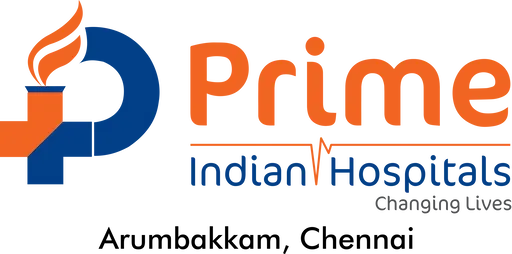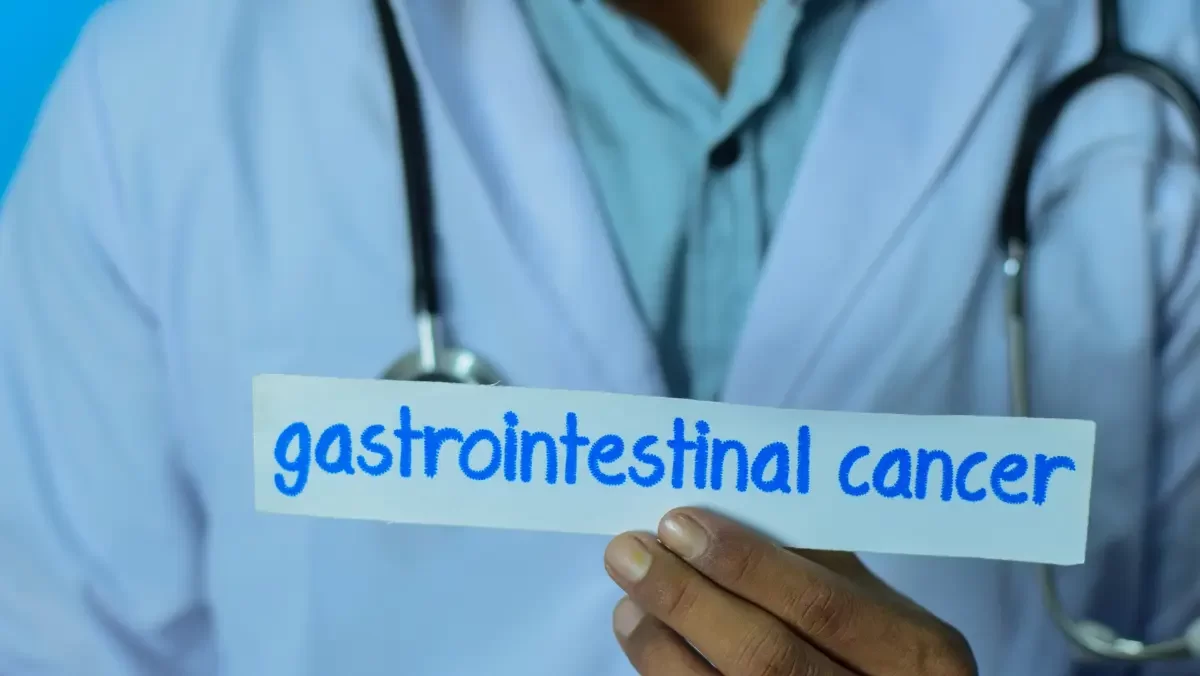Gastrointestinal cancers refer to a group of cancers that develop in the digestive system, including the esophagus, stomach, liver, pancreas, intestines, and rectum. These cancers are among the most prevalent worldwide, with millions diagnosed each year. While these types of cancer can affect individuals of any age, certain risk factors can increase the likelihood of developing them.
Early detection is crucial for successful treatment, as many gastrointestinal cancers do not present noticeable symptoms until later stages. Access to advanced gastrointestinal cancer treatment in Chennai ensures timely diagnosis, personalized care plans, and better survival outcomes. Understanding the signs, risk factors, and lifestyle changes that can help reduce the risk of gastrointestinal cancer is essential for everyone, particularly those with a family history or other risk indicators.
Types
- Esophageal cancers include squamous cell carcinoma and adenocarcinoma. They often arise from long-standing reflux or tobacco–alcohol exposure. Early detection enables organ-preserving options that align with comprehensive pathways for gastrointestinal cancer treatment in Chennai.
- Gastric (stomach) cancer ranges from intestinal-type to diffuse-type disease. H. pylori infection and dietary nitrosamines are major drivers. Care plans integrate nutrition support and peri-operative chemotherapy alongside stomach cancer treatment in Chennai to maximize cure rates.
- Small bowel and colorectal cancers cover adenocarcinoma, lymphoma, and sarcoma in the small intestine, and predominantly adenocarcinoma in the colon–rectum. Lynch syndrome increases risk. Standardized screening dovetails with evidence-based gastrointestinal cancer treatment in Chennai across tertiary centers.
- Hepatobiliary cancers include hepatocellular carcinoma, cholangiocarcinoma, and gallbladder cancer. Cirrhosis, hepatitis B/C, and gallstones are common antecedents. Multidisciplinary care coordinates locoregional therapies, transplant eligibility, and systemic options.
- Pancreatic cancer spans ductal adenocarcinoma and neuroendocrine tumors. Biology varies widely, guiding choices from surgery to targeted therapy. Structured pathways emphasize early CT/PET staging to avoid non-beneficial operations.
- Less common tumors include GIST, GI neuroendocrine tumors, and anal cancers. Targeted agents such as imatinib have transformed outcomes for KIT-mutant GIST. Precision diagnostics help triage patients into optimal clinical trials within regional networks.
Signs and Symptoms
- Persistent upper GI discomfort such as heartburn, dyspepsia, or pain after meals may signal early disease. Escalating frequency, nocturnal symptoms, or new onset after age 45 deserve endoscopic evaluation and streamlined gastrointestinal cancer treatment in Chennai pathways.
- Unintentional weight loss and early satiety can reflect gastric outlet or peritoneal involvement. When paired with fatigue or anorexia, clinicians prioritize rapid imaging and nutrition assessment to prevent sarcopenia before therapy begins.
- Bleeding indicators—black stools, maroon stools, or occult blood—suggest mucosal lesions. Iron-deficiency anemia, especially in adults, warrants colonoscopy and targeted work-up to avoid delays in gastrointestinal cancer treatment in Arumbakkam referral networks.
- Progressive dysphagia to solids then liquids often accompanies esophageal tumors. Food impaction, regurgitation, or aspiration pneumonia are red flags requiring urgent endoscopy with biopsy and stenting when needed.
- Jaundice, pale stools, and itching point to biliary obstruction from pancreatic or cholangiocarcinoma. Early drainage improves liver function and permits timely chemotherapy within coordinated gastrointestinal cancer treatment in Chennai programs.
- Altered bowel habits—new constipation, diarrhea, or pencil-thin stools—may indicate colorectal narrowing. Mucus, tenesmus, or incomplete evacuation further raise suspicion and justify prioritized diagnostic slots in metro centers.
Causes
- Chronic infections and inflammation drive carcinogenesis. H. pylori promotes gastric cancer; hepatitis B/C and cirrhosis underlie hepatocellular carcinoma; long-standing reflux leads to Barrett’s esophagus. Timely eradication and surveillance reduce the need for late-stage gastrointestinal cancer treatment in Chennai.
- Hereditary syndromes such as Lynch, FAP, Peutz–Jeghers, and BRCA-related predisposition elevate lifetime risk. Cascade testing of relatives enables earlier colonoscopy and prophylactic strategies directed by the best gastrointestinal cancer doctors in Chennai within genetics-led clinics.
- Lifestyle exposures—tobacco, heavy alcohol, high salt-preserved foods, and obesity—promote DNA damage and inflammatory signaling. Correcting diet quality and body weight lowers risk and improves tolerance to therapy if cancer develops.
- Occupational and environmental factors include nitrosamines, aflatoxins, and certain solvents. Public health measures and vaccination programs, particularly against hepatitis B, cut incidence and downstream treatment burden.
- Preexisting conditions like inflammatory bowel disease, primary sclerosing cholangitis, or gastric atrophy raise risk through ongoing epithelial injury. Structured surveillance detects dysplasia before invasive cancer emerges.
- Age and hormonal milieu affect tumor spectra and molecular profiles. Recognizing these patterns helps personalize screening intensity and triage into the right pathway for gastrointestinal cancer treatment in Chennai when required.
Stages
- Stage 0–I indicates in-mucosa or submucosa disease with limited nodal spread. Endoscopic resection or limited surgery can be curative. Early staging enables organ preservation within coordinated gastrointestinal cancer treatment in Chennai programs.
- Stage II extends into muscle or serosa without distant metastasis. Surgery remains central, often combined with peri-operative chemotherapy to reduce recurrence risk and optimize margin status.
- Stage III involves regional lymph nodes or adjacent structures. Multimodal strategies—neoadjuvant chemoradiation for esophageal/rectal cancers or triplet chemotherapy for gastric—aim to downstage and increase R0 resections.
- Stage IV features distant metastases or peritoneal spread. Goals include life extension, symptom control, and quality of life through systemic therapy, selective metastasectomy, or HIPEC in carefully chosen cases.
- Grade and biomarkers (e.g., HER2, MSI-H, PD-L1, RAS/RAF, FGFR2) refine prognosis beyond anatomic stage. They guide targeted therapy and immunotherapy, improving outcomes while limiting toxicity.
- Restaging and response assessment using RECIST imaging and tumor markers inform therapy adjustments. Adaptive planning avoids overtreatment and aligns resource use with patient priorities, an important principle in modern gastrointestinal cancer treatment in Chennai.
Risk Factors
- Advancing age and male sex raise incidence for many GI cancers. Post-menopausal status and androgen interactions may influence tumor biology, necessitating tailored screening intervals.
- Family history or pathogenic variants in MMR genes, APC, STK11, or CDH1 sharply increase risk. Prophylactic measures and intensified endoscopic surveillance reduce late detections requiring complex gastrointestinal cancer treatment in Chennai.
- Chronic inflammation and infections—IBD, Barrett’s, H. pylori, hepatitis B/C—sustain epithelial damage. Regular monitoring and timely eradication therapy prevent progression to high-grade dysplasia or invasive cancer.
- Lifestyle factors like smoking, high-salt preserved foods, low fiber intake, and obesity compound risk. Physical activity and Mediterranean-style nutrition mitigate carcinogenic pathways and improve treatment readiness.
- Comorbidities including diabetes, NAFLD, and cirrhosis predispose to hepatobiliary and pancreatic malignancies. Multidisciplinary metabolic care lowers risk and supports safer anesthesia and surgery.
- Socioeconomic and access barriers delay diagnosis and completeness of care. Navigation services, screening drives, and district-level referral linkages shorten time to gastrointestinal cancer treatment in Chennai and improve survival equity.
Diagnosis
- History and examination focus on alarm features—weight loss, bleeding, progressive dysphagia, or jaundice. Nutritional status and performance score shape procedure choices and peri-operative planning.
- Laboratory tests and markers (CBC, LFTs, CEA, CA 19-9, AFP) provide baseline risk signals and aid response tracking. Abnormalities guide urgency for endoscopy or imaging.
- Endoscopy with biopsy—EGD, colonoscopy, or ERCP/EUS—confirms histology and depth. Endoscopic ultrasound stages wall invasion and nodes, crucial for selecting organ-sparing resections.
- Cross-sectional imaging with contrast CT/MRI and PET-CT maps locoregional and distant spread. Staging laparoscopy detects occult peritoneal disease in gastric and pancreatic cancers to avoid non-beneficial laparotomy.
- Molecular profiling (HER2, MSI, MMR, RAS/RAF, NTRK, FGFR2) directs targeted and immune therapies. Tumor boards synthesize findings to tailor gastrointestinal cancer treatment in Chennai with precision.
- Care planning and transparency include counseling on timelines, pathways, and affordability. Early estimation of gastrointestinal cancer treatment cost in Chennai and stomach cancer treatment cost in Chennai helps families prepare; similar cost modeling informs stomach cancer treatment in Chennai choices and package structuring by the best gastrointestinal cancer doctors in Chennai.
Treatment
- Multimodal strategy combines surgery, systemic therapy, and radiation based on stage and biology. Enhanced recovery protocols, nutrition therapy, and infection prevention improve resilience during gastrointestinal cancer treatment in Chennai.
- Surgery ranges from endoscopic mucosal resection to complex hepato-pancreato-biliary procedures. At Prime Indian Hospital, Dr. R. Kannan performs minimally invasive resections with fast-track recovery, collaborating with teams often recognized among the best gastrointestinal cancer doctors in Chennai.
- Systemic therapies include peri-operative chemotherapy, HER2-targeted agents, PARP inhibitors where indicated, and immunotherapy for MSI-H/dMMR or high PD-L1 tumors. Dose-dense regimens are balanced with toxicity management and patient goals.
- Radiation and locoregional options—IMRT, SBRT, brachytherapy, TACE/TARE, or HIPEC—address difficult sites and micrometastases. Careful sequencing with chemotherapy enhances organ preservation and symptom control during gastrointestinal cancer treatment in Chennai.
- Supportive and palliative care integrate pain control, stenting, biliary drainage, and psycho-oncology. Clear discussions of gastrointestinal cancer treatment cost in Chennai and stomach cancer treatment cost in Chennai enable preference-concordant care while maintaining access to stomach cancer treatment in Chennai when indicated.
- Care pathways and location leverage metro-hub coordination and neighborhood access points. Streamlined referrals enable gastrointestinal cancer treatment in Arumbakkam, while tertiary centers deliver complex surgery and trials; combined, these pathways expand timely gastrointestinal cancer treatment in Arumbakkam options.
Conclusion
Gastrointestinal cancers present significant health challenges, but with early detection and lifestyle adjustments, the risks can be mitigated. Regular screenings, a healthy diet, and avoiding harmful habits are essential in reducing the risk of developing these cancers. Individuals who are at higher risk due to genetic predisposition or family history should prioritize early detection methods. If you or a loved one is experiencing any concerning symptoms, it is essential to seek professional advice for appropriate testing and diagnosis. At Prime Indian Hospital, our expert team offers advanced diagnostic services and personalized treatment plans to help you manage gastrointestinal health and minimize cancer risks.














